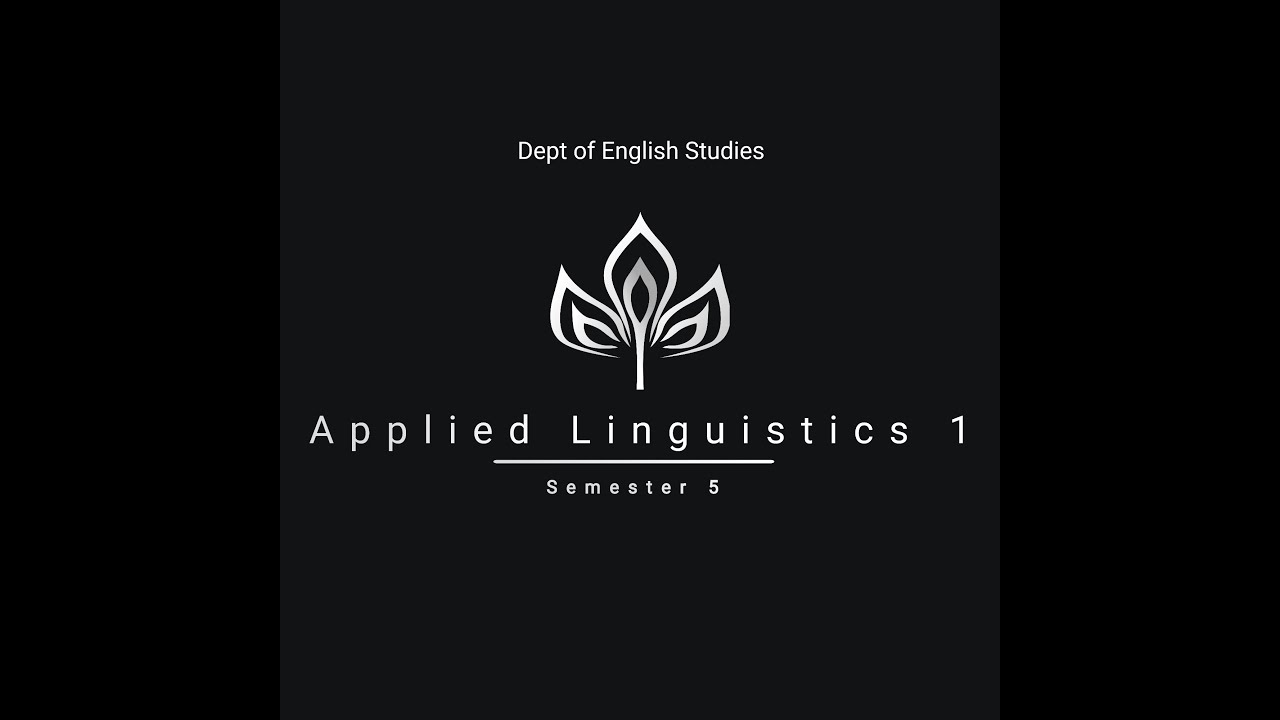Language Learning Strategies- Part 4
Summary
TLDRThis video discusses effective strategies for language learning and becoming a good student. It emphasizes the importance of taking responsibility for one's own education, setting clear goals, and proactively engaging in learning. Key strategies include regular review of materials, focusing on key words and intonation during conversations, and developing the ability to ask clarifying questions. The speaker also highlights the need to accept that not understanding every word is part of the learning process. Additional resources are provided to help learners identify their learning styles and implement effective language strategies.
Takeaways
- 😀 Good students take responsibility for their own learning and are proactive in asking questions.
- 📚 Effective learners regularly review their notes to reinforce knowledge and understanding.
- 🗣️ Thinking in the target language helps improve fluency and comprehension.
- 🔑 Focus on key words, stress, and intonation during conversations to grasp the main ideas.
- 👀 Use contextual clues like body language and tone to infer meaning when conversing.
- ❓ Prepare questions in the target language to clarify misunderstandings during discussions.
- 🎧 Engage in specific listening activities to enhance comprehension skills.
- 🤝 Avoid faking understanding; instead, ask for clarification when necessary.
- 🔄 Experiment with various learning strategies to find what works best for you.
- 📖 Utilize available resources, such as surveys and publications, to support language learning.
Q & A
What is the main responsibility of good students regarding their learning?
-Good students take responsibility for their own learning by being proactive, asking questions, and understanding their goals.
Why is it important for students to organize their own study time?
-Organizing their own study time allows students to ensure they cover all necessary material, especially in cumulative subjects like languages.
What is one strategy mentioned for improving language skills?
-One strategy is to think in the target language rather than translating back and forth to English.
How can reviewing class notes benefit students?
-Reviewing class notes helps students retain information and ensures they don't forget earlier lessons, which is crucial for cumulative subjects.
What should students focus on when engaging in a conversation in a foreign language?
-Students should focus on word stress, intonation, and pauses to help understand the general meaning, even if they don’t catch every word.
What can students do if they don't understand a conversation?
-Students can make educated guesses based on context, body language, and tone, and they should feel comfortable asking questions for clarification.
What are 'cover strategies' in language learning?
-Cover strategies are tactics used when a student doesn't understand, such as nodding or smiling, but it's important not to rely on them too heavily.
What should students do if they can't keep up with the speed of conversation?
-Students should feel free to ask the speaker to slow down to better understand the conversation.
What type of resources were provided to the students?
-Students received handouts including a learning style survey, a language strategy use survey, and additional materials on vocabulary and study strategies.
Why is it beneficial for language learners to try different strategies?
-Trying different strategies helps learners discover what works best for them and enhances their language acquisition process.
Outlines

このセクションは有料ユーザー限定です。 アクセスするには、アップグレードをお願いします。
今すぐアップグレードMindmap

このセクションは有料ユーザー限定です。 アクセスするには、アップグレードをお願いします。
今すぐアップグレードKeywords

このセクションは有料ユーザー限定です。 アクセスするには、アップグレードをお願いします。
今すぐアップグレードHighlights

このセクションは有料ユーザー限定です。 アクセスするには、アップグレードをお願いします。
今すぐアップグレードTranscripts

このセクションは有料ユーザー限定です。 アクセスするには、アップグレードをお願いします。
今すぐアップグレード関連動画をさらに表示

Teaching Reading to Young Learners - Cara Mengajar Reading Untuk Anak Anak

Effective feedback animation

Membuat Lembar Amatan SMP Bahasa Indonesia | Menyiapkan Asesmen SMP

how i study japanese- tips from an actual language major | THE ULTIMATE GUIDE

REFLECTIVE TEACHING IS EFFECTIVE TEACHING

Individual Learner Differences In SLA
5.0 / 5 (0 votes)
